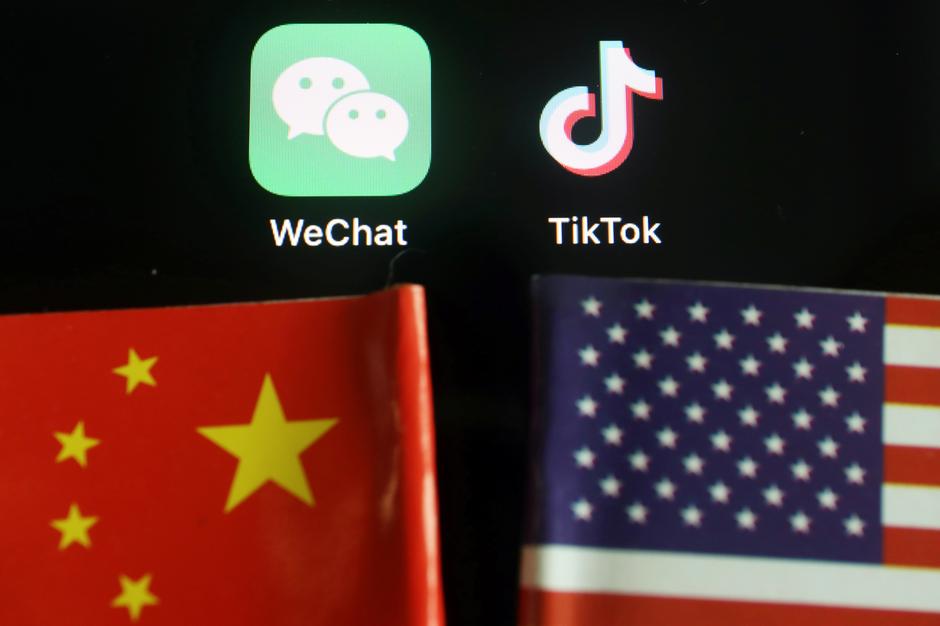
File photo: Agencies
Following the US government’s “clean network” program to target Chinese apps and web services, US President Donald Trump issued on Thursday an executive orders banning US transactions with Chinese tech companies ByteDance and Tencent, claiming they pose a threat to US national security.
Such a program has triggered concerns that the global internet is prone to get increasingly “Balkan-ized,” with US citizens unable to access certain Chinese apps or web services simply due to rising geopolitical tensions. Invisible walls are set to be built between China and the US in the online environment.
The ban on Tiktok, provided by ByteDance and Wechat, and the previous move to discredit Huawei in the name of dismantling national threats, is groundless. ByteDance announced it would sue the Trump Administration as the executive order was issued without due process.
As China turns into the hive of high-tech developments in recent years and breeds tech giants, including Baidu, Alibaba, Tencent, Huawei and Bytedance, with numerous advancements that few Silicon Valley companies are able to catch up with. The US scheme is to hinder the development of Chinese tech companies so that its monopoly on information technology can be further strengthened.
Feeling incompetent against Chinese tech enterprises, the US can only resort to hegemony and its state power to elbow out its Chinese counterparts with the ridiculous excuse of protecting US citizens' privacy and its companies' most sensitive information from aggressive intrusions by maligning actors, according to Pompeo in an announcement of the “clean network” program. This in essence would start a tech cold war, restricting the international expansion of the Chinese tech industry.
In response to the US statement, a Chinese Foreign Ministry spokesperson said the US practice has no factual basis, and is sheer slander and political manipulation, which is a typical hegemonic behavior that runs against market principles and international trade rules, and severely threatens the security of global industrial and supply chains.
But it should be further noted that keeping China away from America’s internet is a dog in a manger, which does no good for anyone. Cutting ties on the internet and other high-tech sectors between the two major powers will ultimately generate tremendous losses to the US itself. From telecom carriers, cellphone apps, cloud services, to undersea internet cables, a wide range of sectors will bear the consequences in the long run. US companies with close ties to Chinese tech companies will also face severe tests.
With the Chinese government pledging to enhance building the new infrastructure, mainly information technologies, high-tech companies in the country will see huge opportunities. Therefore, they should not be intimidated in such a time of crisis, but rather survive and thrive with tenacity. By maintaining and expanding their markets, they should further innovate to build their own strengths and lessen reliance on the US. Despite occasional triumphs of the “clean network” program, sustaining an open and free global internet environment is an inevitable trend.
Enhancing interconnectivity across geographical borders is what tech companies aspire to do in the globalized world, which will never be interrupted by the US-China saga. History shows that we should build bridges, not walls, as a common dream of mankind.


